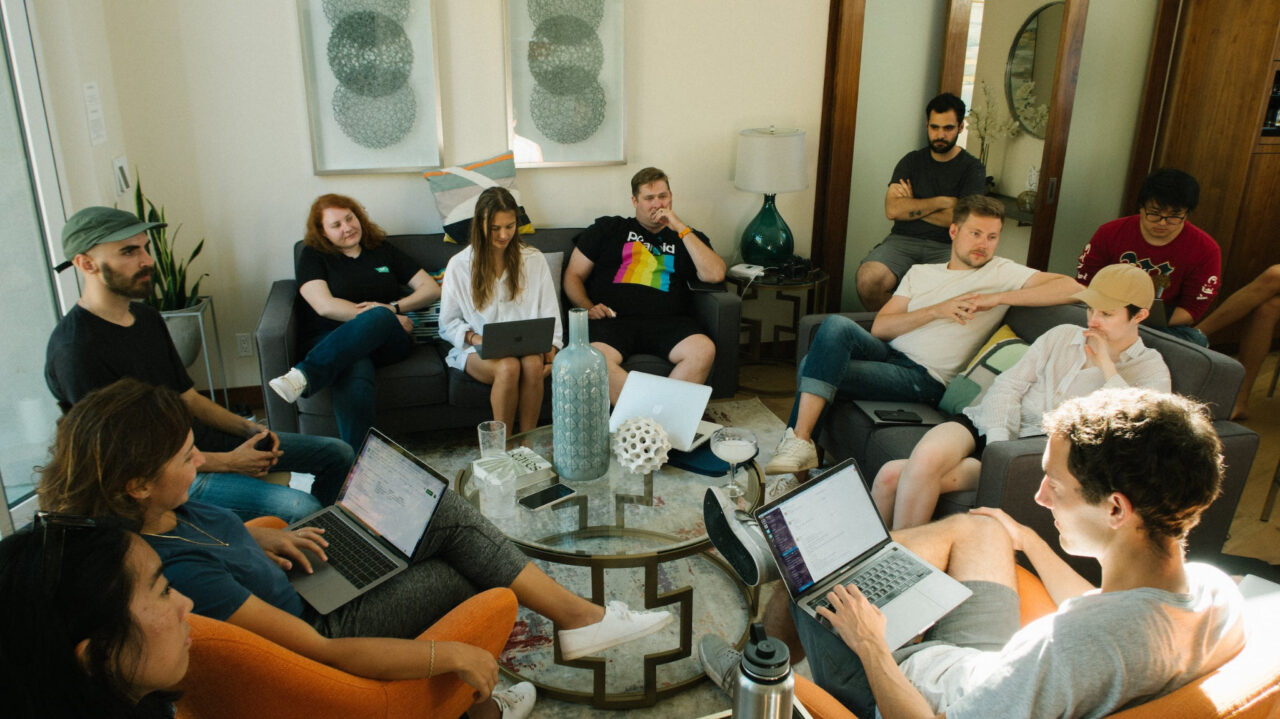I know that young people are bewildered about “how to become a digital marketing specialist” because the process might seem vague. So I have compiled a specific path for everyone.
I have been working in this field for over a decade. And I must admit that this is an interesting job but needs a lot of skill and constant updates.
Thus, check out my guide and step into the field!
Who Is A Digital Marketing Specialist?
A digital marketing specialist uses online platforms and strategies to promote brands, attract customers, and boost sales. Typically, you can work in one (or several) of the following areas:
- Website
- Search engine
- Content
- Social media
- Affiliate
- Video
Besides, they work with other teams to create content, like ads and articles. This job is always changing because the Internet is changing. Thus, they must keep learning about the newest techniques and how people use the Internet.
To be good at this job, you need to be creative, smart with numbers, and able to plan well. Also, you need to work with others well because it’s a team effort.
How To Become A Digital Marketing Specialist?

Here are the best steps for you to get this job. I have compiled this guide based on my personal experiences and those of my colleagues.
Step 1: Educational Background
As a specialist in this field, a strong education has helped me succeed in this career. Learning about marketing, communication, and related subjects has given me a solid base. It helps me understand what people like and how to plan.
For this profession, you usually don’t need a bachelor’s degree. Many successful digital marketers I work with come from diverse educational backgrounds and have alternative paths such as self-learning, online courses, or certifications.
Yet, having a bachelor’s degree in marketing or ads will give you a stronger foundation in the field. Also, it can boost your qualifications when seeking jobs in larger firms.
In general, basic knowledge you need to learn include:
- Marketing principles: consumer behavior, target audience segmentation, and the 4Ps of marketing.
- The basics of marketing channels.
Then, you have to update it constantly to develop yourself.
Step 2: Gain Relevant Skills
To get this job, besides basic knowledge, you need to focus on gaining relevant skills. They encompass the core principles and the latest trends in the digital landscape. Some of them include:
- SEO: learn how to optimize content for search engines, conduct keyword research, and improve website visibility.
- PPC: learn to create and manage PPC campaigns, select keywords, and analyze ad performance.
- Content creation: develop the ability to create engaging and valuable content for various digital platforms.
- Social media management and ads: learn how to manage and engage audiences on these platforms. Also, you must know how to create and manage paid ad campaigns.
- Email marketing: understand email campaign planning, content creation, list segmentation, and analysis.
- Data analysis: learn to measure how your campaign works.
- Digital marketing analytics: know web analytics and social media insights to assess campaign performance.
- A/B testing: learn to conduct A/B tests to optimize marketing plans.
- Copywriting: develop skills in crafting persuasive and compelling copy for ads and content.
- Graphic design: basic design skills for creating visuals and graphics for digital campaigns.
- Project management: organize and manage multiple campaigns well.
- Strategic thinking: develop the ability to create comprehensive strategies aligned with business goals.
- Communication: strong communication skills for conveying ideas, collaborating with teams, and engaging with audiences.
- Time management: well manage tasks and deadlines in a fast-paced digital environment.
- CRM: familiarize yourself with CRM tools for managing customer interactions and data.
- Adaptability: stay up-to-date with evolving digital trends and adjust strategies accordingly.
Maybe these skills will overwhelm you at first. But having them is essential in this age of science and technology. These skills equip you to navigate digital marketing and create impactful campaigns that drive results.
Step 3: Enroll In Online Courses And Certifications

As a digital marketing specialist, I suggest joining online courses and getting certifications. These help you learn a lot about this field. You can learn at your own pace, which is great when you’re busy. Here’re where you can find them:
- Google Digital Garage
- HubSpot Academy
- Facebook Blueprint
- Coursera
- LinkedIn Learning
I personally found these courses super helpful. They kept me updated on new things in digital marketing. I learned practical stuff I could use right away.
So, if you’re starting or want to be better, taking online courses and getting certified is a wise choice.
Step 4: Build A Portfolio
A portfolio is a collection of real projects telling what you can do. It’s like a visual resume proving your expertise in different areas. Here’s how I built a portfolio:
I started by taking on small projects, such as:
- Managing social media accounts
- Creating content
- Running small ad campaigns
I documented each project to show my goals, strategies, and results. I also included before-and-after data whenever possible. My goal is to highlight the impact of my work.
With a good portfolio, you will set yourself apart and provide potential employers with a tangible example of your abilities. I mean, it’ll show that you can put theory into practice and deliver actual results.
Step 5: Build Network

I always advise young people to build networks to create job opportunities and get helpful advice from people with more experience. If you don’t know where to start, you can follow my way:
I join events and webinars where experts talk about this field. I also chat with people online who are interested in the same things.
We connect on platforms like LinkedIn. Then, I can share my thoughts and learn from what others share.
Building my network has led to people recommending me, finding partners, and even getting job offers.
It’s not just about getting ahead; it’s about making a group of people who help each other in the fast-changing world of digital marketing.
Step 6: Gain Work Experience

To get experience, I recommend internships or part-time jobs. Or you can choose freelance work if you don’t want to be constrained by time and place.
You can start by applying for SEO expert positions or doing some marketing campaigns.
In this process, you’ll do tasks like:
- Making content
- Working with ads
- Managing social media
You’ll see what works and what doesn’t. Then, you’ll know how to change things when needed.
In my case, I could learn from others and see how digital marketing works. They were the solid foundation for me to be a digital marketing specialist.
Moreover, I recommend regularly asking your mentors and bosses for advice. With time, your work experience will open doors for better roles.
Step 7: Pursue Advanced Certifications
After getting some work experience, I recommend learning more and getting some advanced certifications, including:
- Google Ads Certifications
- Google Analytics Individual Qualification (IQ)
- Facebook Blueprint Certifications
These certifications will help you handle more complicated projects and show you’re still learning and growing. Besides, they’ll make you more valuable to employers or clients.
Over time, when you have more experience, skills, and needed certifications, you can apply for this position whenever you feel confident.
But remember, this field keeps changing. So you need to keep learning even after you become a specialist. It’s like a never-ending learning journey.
How Much Time Does It Take To Be A Digital Marketing Specialist?
Becoming a digital marketing specialist takes about 3 to 5 years. And it can vary based on your starting point, learning pace, and the depth of expertise you aim to achieve.
If you’re starting from scratch, you need a few months to learn the basics of this field. If you’re pursuing a bachelor’s degree, you’ll need more time. But in return, you will have a better foundation to develop in this field.
After that, gaining experience through internships or small jobs could take six months to a year.
If you want to get really good at specific things like SEO, social media, or ads, you might need another six months to a year of learning and practice.
For even more expertise, you can go for advanced certifications. These might take a year or more since they cover in-depth topics.
What Does A Digital Marketing Specialist Do?
If you are curious about what a digital marketing specialist’s work includes, here are some tasks in my marketing campaigns (I will describe them as simply as possible so you can easily visualize them).
- Planning: I create plans to make businesses look good on the Internet.
- Content making: I create blogs, videos, and pictures to share online.
- Social media tasks: I handle Facebook, Instagram, and other social accounts.
- Google tasks: I use tricks to make companies show up when people search on Google.
- Ads: I make ads that show up on websites and social media. This task helps get more people to visit the business site.
- Emails: I send emails to customers to tell them about new plans or sales.
- Numbers checking: I look at numbers to see if my strategy works. If not, I’ll change things up.
- Making websites better: I make websites easy to use so more people buy stuff or sign up.
- Reports: I show my boss how well things are going online.
Job Outlook and Salary
The job outlook for this career path is good. Research says there will be about 20% more jobs from 2018-2028 (around 139,200 job opportunities).
In 2023, a digital marketing specialist can earn about $89,999 per year on average. And you can get up to $99,000/year if you are at the management level.
So, if you’re thinking of getting this job, the future looks bright with lots of jobs and better pay.
Work Environment
As a digital marketing specialist, you can work in the office or remotely (like me). Because I don’t have to go to the office, I can work from home, in cafes, or anywhere with the Internet.
I work with different people, like designers and writers, even if we’re not in the same place. We talk via emails, video calls, and special tools to keep things organized.
A big part of my job is looking at numbers to see how well my marketing works. This task helps me make better choices.
I also join online meetings and workshops to learn new things. The digital world changes fast, so I’m always learning.

FAQs
Are An Executive And A Specialist In Digital Marketing Different?
Yes, they’re different. An executive has a broader role overseeing strategies and teams. Meanwhile, a specialist focuses on SEO, content, or social media.
Is The SEO Executive And Digital Marketing Executive The Same?
The answer is no. An SEO executive specializes in SEO. A digital marketing executive, on the other hand, deals with a larger variety of digital strategies. They’re not the same but may overlap.
Can I Become A Digital Marketing Specialist Without Experience?
The answer is yes. You can get this job without experience, but of course, having experience is better. I recommend starting with basic roles, internships, or entry levels that can pave the way to specialization.
Is Becoming A Digital Marketing Specialist Worth It?
Yes. Getting this job is worth it due to the growing demand for online presence. I love this job because it offers diverse career paths, competitive salaries, and up-to-date opportunities in a rapidly changing field.
Conclusion
Above are my shares on how to become a digital marketing specialist. To start, you must learn the basics and gain skills. Then, get experience and needed certifications. Don’t forget to build a portfolio and connect with others!
I believe you will get this job and have a lot of success with my 7-step guide above. The process will be challenging, but you can certainly do it!
